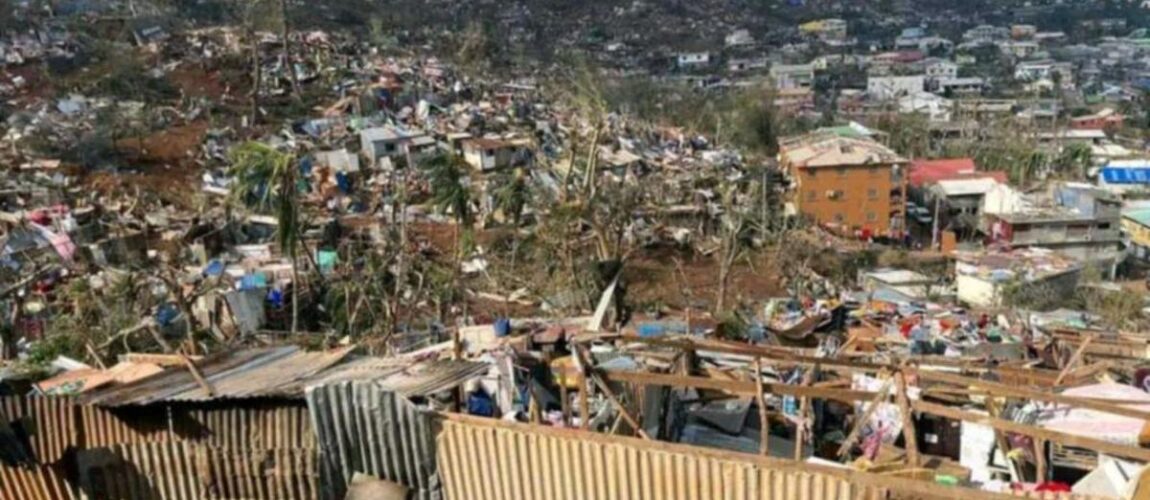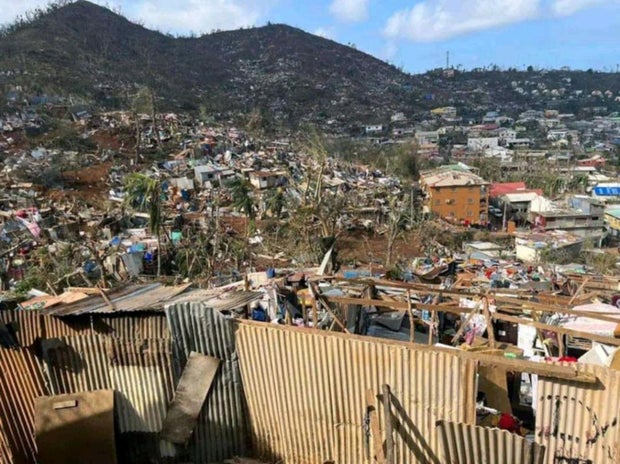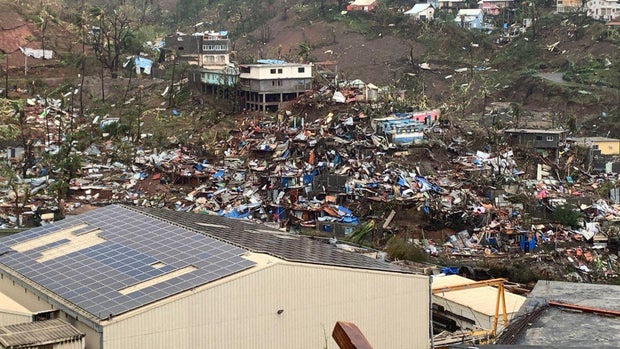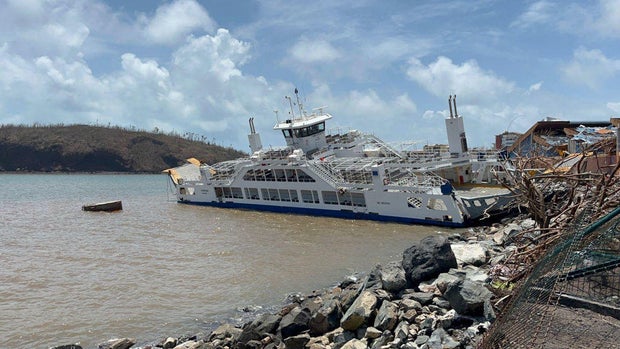The death toll in the French territory of Mayotte from Cyclone Chido is in the “several hundreds” and could reach the thousands, the island’s top government official told a local broadcaster on Sunday.
France rushed rescue teams and supplies to its largely impoverished overseas department in the Indian Ocean, which has suffered widespread destruction.
“I think there are a few hundred dead, maybe we’ll get closer to a thousand. Even thousands… given the violence of this event,” Mayotte Prefect François-Xavier Bieuville told Mayotte TV station la 1st
He had previously said it was the worst cyclone to hit Mayotte in 90 years.
Bieuville said it was extremely difficult to get an exact number of dead and injured after Mayotte was hit by the intense tropical cyclone on Saturday, which caused significant damage to public infrastructure, including the airport, flattening neighborhoods and cutting off the electrical supply
The French interior ministry confirmed at least 11 dead and more than 250 injured early Sunday, but said it was expected to rise substantially.
DANIEL MOUHAMADI/AFP via Getty Images
Mayotte, in the south-west of the Indian Ocean off the coast of Africa, is the poorest island in France and the poorest territory in the European Union. It has a population of just over 300,000 inhabitants spread over two main islands.
Bieuville said the worst devastation had been seen in the slums of metal shacks and informal structures that mark much of Mayotte. Referring to the official death toll so far, he said “this figure is not plausible when you see the footage from the slums”.
“I think the human toll is much greater,” he added.
Chido flew across the southwestern Indian Ocean on Friday and Saturday, also affecting the nearby islands of Comoros and Madagascar. However, Mayotte was directly in the path of the cyclone and took the brunt. Chido brought winds of more than 220 km/h (136 mph), according to the French weather service, making it a Category 4 cyclone, the second strongest on the scale.
Chido later made landfall in Mozambique on the African continent, and there were fears that more than 2 million people in the north of the country could be affected, according to authorities there.
French President Emmanuel Macron said his “thoughts” were with the people of Mayotte and Interior Minister Bruno Retailleau was due to travel to Mayotte on Monday. Retailleau had warned on Saturday night after an emergency meeting in Paris that the death toll “will be high”, while new Prime Minister François Bayrou, who took office on Friday, said infrastructure had been severely damaged or destroyed in Mayotte.
KWEZI/AFP via Getty Images
Pope Francis offered prayers for the victims during a visit to the French Mediterranean island of Corsica on Sunday.
Rescuers and firefighters were dispatched from France and the nearby French territory of Reunion, and supplies were also flown in by military aircraft and ships. Damage to the airport’s control tower meant that only military aircraft could enter.
Patrice Latron, the prefect of Reunion, said the authorities intend to establish an air and sea bridge from Reunion to Mayotte. About 800 more rescuers were due to be sent in the next few days, and more than 80 tons of supplies had been shipped or were on their way by ship. Some of the priorities were restoring electricity and access to clean water, Latron said.
The French Interior Ministry said 1,600 police and gendarmerie officers had been deployed to “assist the population and prevent possible looting”.
In some parts of Mayotte, entire neighborhoods of shacks and metal shacks were flattened, while residents reported being uprooted, boats overturned or sunk, and many areas without electricity.
Chad Youyou, a resident of Hamjago, in the north of the island, posted videos on Facebook showing the extensive damage to his village and the surrounding fields and hills, where almost all the trees had been uprooted.
“Mayotte is destroyed… we are destroyed,” he said.
KWEZI/AFP via Getty Images
Chido continued to track east and north of Mozambique, where it continued to cause severe damage, while further inland, Malawi and Zimbabwe warned they would have to evacuate due to flooding.
In Mozambique, UNICEF said Cabo Delgado province, home to about 2 million people, was the first region affected and many homes, schools and health facilities have been partially or completely destroyed.
UNICEF Mozambique spokesman Guy Taylor said communities faced the possibility of being cut off from schools and health facilities for weeks, and Mozambican authorities warned there was a high risk of landslides
December to March is cyclone season in the south-west Indian Ocean and southern Africa has been hit by a number of strong ones in recent years. Cyclone Idai in 2019 killed more than 1,300 people, mostly in Mozambique, Malawi and Zimbabwe. Cyclone Freddy left more than 1,000 dead in several countries in the Indian Ocean and southern Africa last year.
Cyclones bring the risk of floods and landslides, but stagnant pools of water can also trigger deadly outbreaks of water-borne disease, cholera, as well as dengue and malaria.
Studies say cyclones are getting worse due to climate change. They may leave poor countries in Africa, which contribute a small amount to global warming, facing major humanitarian crises, underscoring their call for more help from rich nations to deal with the impact of change climatic




